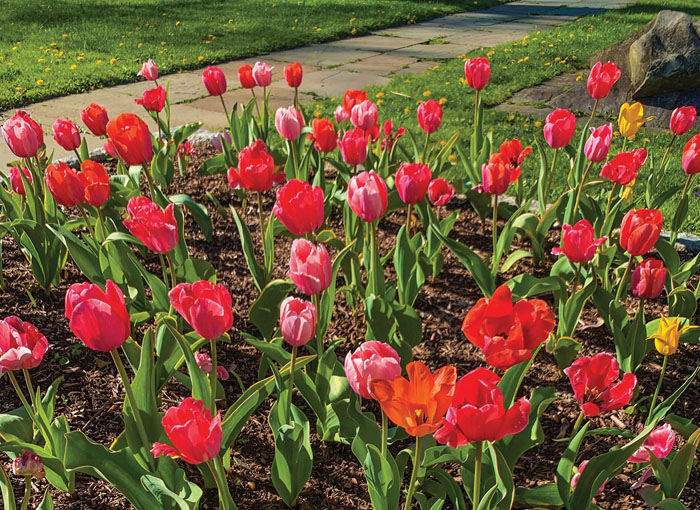Home Improvement: What to do to prepare your garden for winter
Published 12:00 am Tuesday, September 29, 2020
Metro Creative
Gardens provide an idyllic escape from the hustle and bustle of everyday life. In fact, many gardening enthusiasts typically cannot wait for the spring thaw so they can spend the next several months tending to their plants under the warm sun. But a gardener’s work is never truly done, and the work to make gardens stun in the spring actually begins during the preceding fall. Preparing gardens for winter is an important step that can help homeowners ensure their gardens return to full strength in the spring. The tasks necessary to prepare gardens for winter may depend on what homeowners are planting, but the following are some general maintenance suggestions that can keep gardens safe this winter.
• Remove weeds and debris. Weeds and debris are unsightly and detrimental to plant life in spring, but they also can be harmful in the winter. Weeds and debris left to linger in gardens through the winter provide overwintering spots for insects and can contribute to disease. So it’s imperative that weeds and debris are removed before the ground hardens in winter. Don’t wait until the ground hardens, as that can make it hard to remove the roots of weeds, adversely affecting the garden as a result.
• Prepare the soil. The Farmer’s Almanac advises homeowners to gently till the soil in their gardens so they can expose any insects before they settle in for the winter. Once garden soil is exposed, add a layer of compost, leaves, aged manure, and, if necessary, lime, gently tilling it into the soil. According to the North Carolina Cooperative Extension, the only accurate way to determine if lawn or garden soil needs lime is to test it. Lime makes soil less acidic and reduces soil pH. Low soil pH makes it hard for certain plants to grow, but acidic soil is ideal when growing blueberries. Test the soil for lime and amend it depending on what you hope to grow in the spring so it’s ready to thrive when winter ends.
• Remove dead or diseased plants. Dead or diseased plants should not be left in the garden through the winter. These plants can attract insects and are vulnerable to disease, which can make it hard for the garden to thrive in the spring.
• Protect fruit trees. If you have fruit trees, install mouse guards around the base to prevent mice and voles from killing the trees over the winter. If left to their own devices over the winter, mice and voles may eat the bark of fruit trees, killing the trees as a result. The Farmer’s Almanac notes that mouse guards made of fine mesh hardware cloth can effectively protect fruit trees from hungry mice and voles over the winter. A gardener’s work is never done, and the work to create beautiful spring gardens begins in the fall.





